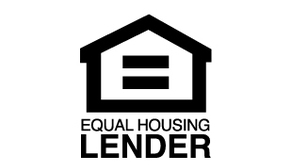Interest rates are at historic lows. As a current homeowner, you may be wondering if it’s worth your time to consider refinancing your mortgage. If you bought your home when the Fed’s interest rates were at least 1.5%, or 150 basis points higher than they are right now, you may be thinking about how much money you could save on interest payments by refinancing your original loan at today’s lower rates.

To facilitate your decision-making process, here are a few of the main pros and cons of refinancing your mortgage in light of current market dynamics. As you consider these points, you’ll get a better idea of how your decision to refinance may impact your finances and future housing security.
Addition Read: Mortgage Refinancing Tips For Self-Employed Borrowers
PROS OF REFINANCING YOUR MORTGAGE LOAN
Save Money Due To Lower Interest Costs
Mortgage costs are made up of two primary components: the principal and interest costs. Refinancing at lower interest rates can reduce your overall borrowing costs over the life of your loan. If it costs less to borrow the money for your mortgage, you can save hundreds of dollars every month in interest payments.
There are several factors to take into account to determine how much you can save, like the type and structure and rate of your current loan. Depending on your existing mortgage, here are a few of the ways that you may be able to reduce your interest costs:
- Lower interest rate: If rates have fallen, your credit risk remains the same or improved since you secured your original mortgage, and you may be able to obtain a lower interest rate. When you refinance from higher-interest debt, expect the lender to look at your current credit score, income, and debt-to-income ratio to determine your ability to repay your loan.
- Shorter loan term: If you reduce the loan term, you’ll pay less interest because there simply isn’t as much time for interest to accrue. Even though you will ultimately be saving money, you may wind up with a higher monthly payment over a shorter loan duration.
- Switching from an adjustable-rate mortgage (ARM) to a fixed-rate mortgage: Refinancing from an ARM to a fixed-rate mortgage will remove the risk of rising interest rates if they increase in the future, shielding you from potential interest-rate hikes.
- Refinancing from Jumbo to conventional loans: Jumbo loans exceed the conventional (conforming) loan limits determined by the Federal Housing Authority (FHA) each year. Once the balance on a jumbo loan drops below that threshold, refinancing to a conventional loan (generally offered at lower interest rates, since they are for smaller loan amounts and carry less risk) can save you money.
Lower Your Monthly Payments
Refinancing to a lower interest rate loan with the same terms will often result in lower monthly payments. Another, less desirable way to reduce your monthly payments is to refinance to a loan with a longer-term. Since you would pay over a longer duration of time, your individual payments may be lower, but you’ll generally have a higher overall borrowing cost as interest costs accrue.
Make Your Loan More Predictable
ARM’s have interest rates that can increase or decrease at each specified interval. A common term for adjustable-rate mortgages is the 5/1 ARM. This loan configuration keeps your introductory (often preferable) rate locked in for the first five years. After that, your interest rate can change every year. Refinancing to a low, fixed-rate mortgage can save you money compared to higher variable rates if interest rates increase.
Eliminate Mortgage Insurance
The FHA mortgage loan program requires that first-time homebuyers maintain expensive annual insurance premiums for at least the first 11 years of the loan (for loans issued after June 2013), sometimes the entire duration of the loan, to protect the lender from default.
Once you achieve 20% equity in your home, you can convert an FHA loan to a conventional loan and eliminate the annual mortgage insurance payment, saving you money each year. You’ll generally accrue that amount of equity before the first 11 years of the loan and well before the full 15 or 30-year loan term.
Affordably Tap Into The Equity In Your Home
Cash-out refinancing can make sense if you need access to low-cost capital. This version of a home equity loan or line of credit gives you cash that you can use on anything, like college tuition, medical bills, student loans, or for funding home improvement projects.
Like a home equity loan, your loan is secured by the value of your home. These funds are often more affordable than credit cards or other personal loans since your lender is at a reduced risk of default with your home as collateral.
CONS OF REFINANCING YOUR MORTGAGE
While there are many potential upsides to refinancing your mortgage, it can be a time and labor-intensive pursuit. You’re essentially going through a slightly streamlined mortgage process again. There are no guarantees you’ll wind up with a lower rate and the process can be complicated.
Applying To Refinance Your Loan Is Difficult
Before you jump the gun to refinance, know that it requires a lot of effort. Though the process is a smidge easier than securing your primary mortgage, since you’ve already been approved for and are in good standing with your current loan, refinancing isn’t for the faint of heart.
Lenders still require tons of paperwork to verify your employment, income, and identity to ensure that you qualify for refinancing. The process often takes weeks and can be stressful, so don’t commit to the idea unless you’re ready to go through with it.
You May Not Be Approved
When you refinance, the lender will reassess your credit risk. If your credit score has fallen, you’ve recently changed jobs, or your debt-to-income ratio has increased, your application may be rejected. If your borrower profile has degraded and your application is approved, the terms may not be as favorable as anticipated.
Refinancing Doesn’t Guarantee That You’ll Break Even
While the ideal scenario is to refinance to a lower interest rate and save money compared to your original loan, there are a handful of situations where that won’t be the case. For example, there are many upfront costs and fees associated with originating a mortgage loan that is usually rolled into the total costs of the loan. If you have to sell your home soon after you refinance, you may never break even on your new loan thanks to those upfront costs.
Higher Monthly Payments
Cashing out with a home equity loan or reducing your loan term can save you money, but it can also result in a higher monthly payment. Higher monthly payments become an issue if the larger amount strains your monthly budget. If you elect to refinance with a higher monthly payment, make sure that you can withstand the increase.
Down Markets Can Deter Your Efforts
Areas with declining home values and high or increasing rates of short sales and foreclosures are a higher risk for lenders. If those circumstances in your area have deteriorated since you bought your home or last had it appraised, this may lead to a lowball appraisal that will hinder your chances of qualifying for a refinance loan. If you’re looking to refinance a property that fits those criteria and can wait, you may want to postpone until the market improves.
DECIDING WHETHER REFINANCING IS RIGHT FOR YOU
There are many cases where refinancing a home mortgage loan, especially in today’s low-interest-rate climate makes sense. However, there are plenty of pitfalls to consider before you decide to pursue refinancing.
First of all, there are no guarantees. Even if your borrower profile is intact or has improved, there are plenty of other factors, like down markets and lowball appraisals that can foil your refinancing attempt.
If you do successfully refinance your home loan and need to sell your home years before you planned, you may not have reached the point where you’ve broken even after paying all of the upfront costs for this new loan. In that case, refinancing could cost you quite a bit of money. If the housing market sours, you may wind up with less equity than you expected. If you refinance and lose your job, your house and financial stability are on the line, leaving you in a precarious position.
Alternatively, refinancing may be a great option for you. If you’re approved for refinancing your original loan with more favorable terms, you can save thousands of dollars in saved interest costs. Successfully refinancing nonconventional loans can be worth the effort, too.
Historically low-interest mortgage rates in Chicago make home loan refinancing particularly attractive right now. Regardless of the outcome, carefully consider the pros and cons of refinancing in the context of your situation to decide whether it’s worth applying.
Additional Read: Why You Should Consider Refinancing Your Mortgage This Summer
A and N Mortgage Services Inc, a mortgage banker in Chicago, IL provides you with high-quality home loan programs, including FHA home loans, tailored to fit your unique situation with some of the most competitive rates in the nation. Whether you are a first-time homebuyer, relocating to a new job, or buying an investment property, our expert team will help you use your new mortgage as a smart financial tool.







